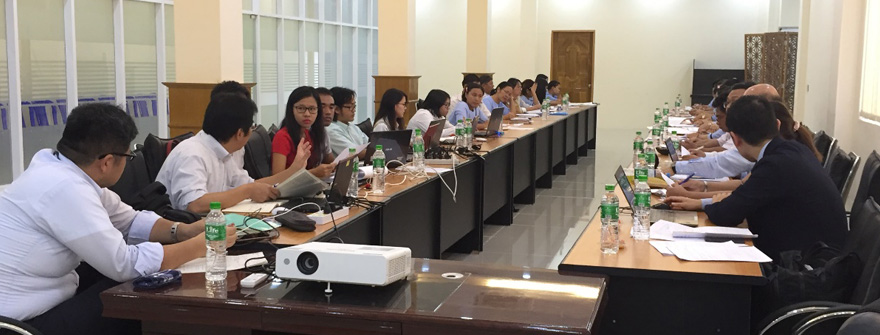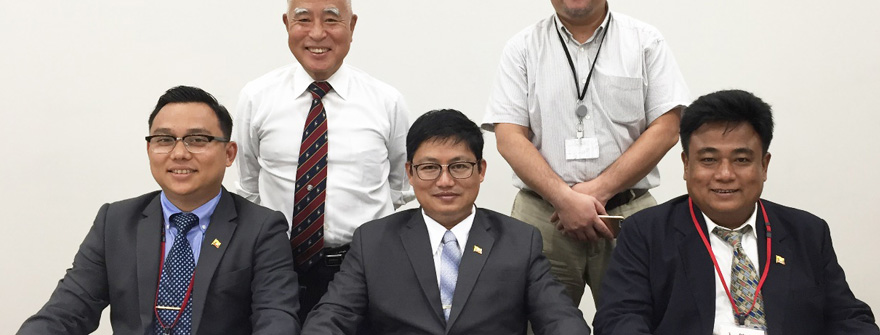Fellows' Works & Activities
Port EDI System to Move Myanmar Ports from Paper to Pixels by 2017
The Port EDI system would not only help vessels save time in these application procedures, but also in invoicing, logistics and terminal management.
Over the past ten years, booming trade has caused the number of vessels and cargo throughput to double, which calls for efficient management. For that purpose, the Myanmar Port Authority asks port administrators, shipping companies and private firms to all use the EDI system.
The Port EDI system will lay the groundwork for Myanmar to join the ASEAN Single Window Initiative, connecting the National Single Window to global economic integration. Myanmar aims to join the Asean Economic Community by 2018.
With the aid of 1,720,000,000 yen from JICA, Myanmar's economic growth is accelerating, by modernizing cargo handling systems and operations at Yangon Port, Myanmar’s major cargo port. The Exchange of Notes between the Republic of the Union of Myanmar and the Government of Japan was signed on March 19, 2015, and the Grant Agreement between MPA, on behalf of the Ministry of Transport of the Government of the Republic of the Union of Myanmar, and the JICA Myanmar Office, on behalf of JICA, was signed on March 26, 2015.
To develop the project, Mitsubishi Research Institute (MRI) was appointed as the consultant and the Hitachi Solution Co, Ltd. has been selected as the developer for the Port EDI system. Starting development in October 2015, the Myanmar Port EDI System has business functions for port-related procedures, berth allocation, invoice issuing, statistics management, terminal operation, logistics monitoring and linking with external systems.
Currently, the basic design stage has been concluded among MPA officials, members of Hitachi Solutions, and consultants of Mitsubishi Research Institute. Several meetings have been held among the three parties in order to launch the system at the beginning of October 2017.
After the system’s implementation, we can expect great improvements on shipment procedures, port services and performance. In addition, the superior in charge will get access to reports (berth maps, cargo information, etc.) in a timely fashion.
There are three Sasakawa Fellows working at the Myanmar Port Authority, and all are key players in the development of the Port EDI project.
I am happy to be able to inform you of all this and meet one of the main objectives of the Sasakawa Fellowship program: to share the latest international maritime information and to actively discuss the situation of each country.
Kyaw Wanna
Myanmar, 2013

